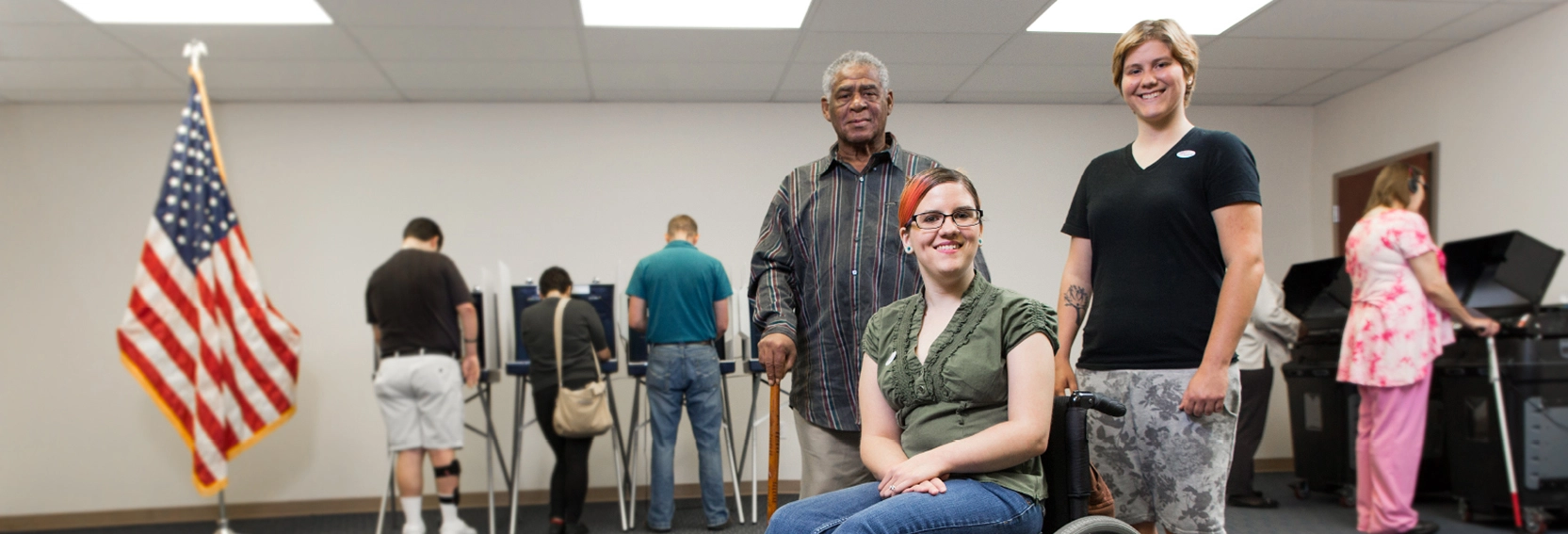During an emergency such as a hurricane or a public health crisis, there is not only a need to focus planning and response efforts on disability-specific aspects of the emergency, but also to seek the input and expertise of people with disabilities in the process. If elected, how would your office work to ensure that state emergency planning (i.e., health testing, sheltering and safety of congregate living populations, et cetera) is inclusive of Florida’s disability communities? How will you work to ensure that communications and other information from the state is accessible to people with disabilities?
I will continue to work closely with the Emergency Operations center to insure that persons with disabilities have adequate shelter and/or access to evacuation. I will also continue to work with counties to make sure there are accessible shelters for disabled individuals.
In the event that the global pandemic lasts through the current school year or possibly beyond, how would you work with state educational officials to ensure that relevant state and federal educational guarantees for students with disabilities are adhered to, and do you believe that it is possible to appropriately educate students with disabilities remotely or through virtual education?
I don't believe that remote education of all students with disabilities is possible. There are some that MUST have in person learning to be successful. That being said, I will work with members of the educational committee to insure steps are taken for the health and safety of all students.
In recent years, the state legislature has devoted much attention to the issue of mental health service delivery and crisis response systems in state public schools. In your opinion, how should the state work to ensure that the mental health needs of its students are met, and what reforms are needed to provide adequate mental health and crisis response services in our schools? When, if ever, is it appropriate for schools to initiate involuntary examinations for its students under the Florida Mental Health Act (“the Baker Act”)?
This is an area of the state legislature that I need to learn more about. I do not have all the answers, but I am open to learning more.
It has become apparent that COVID-19 spreads most easily in institutional and congregate living arrangements. If elected, how would you work to prevent the unnecessary institutionalization of persons with disabilities and reduce other forms of congregate living in favor of serving persons with disabilities in their own homes or the community both during and after the current pandemic? What will you do to ensure that people with psychiatric disabilities are afforded the services they need to succeed in their own homes and communities and avoid psychiatric hospitalization?
It is much more cost and health effective to treat individuals in their own homes with familiar circumstances. I will do everything I can to make sure that is the first line of treatment.
Even before the pandemic began and massive job losses ensued, 2.7 million Floridians were uninsured. Research shows that under normal circumstances the uninsured have much greater challenges accessing health care, and these disparities are exacerbated during a health crisis. Do you support expanding the state’s Medicaid program to cover adults (19-64) with income up to 138 percent of the federal poverty level to provide more than 800,000 Floridians with coverage? Why or why not? Do you support proposals to utilize a “block grant” or “per capita cap” approach to contain Medicaid spending? Why or why not?
I supported the increase and expansion of Medicaid to disabled individuals and will do so again.
Despite the protections of the Americans with Disabilities Act (the ADA) and related state and federal laws, the unemployment rate of people with disabilities continues to be much higher than that of people without disabilities. If elected, how would you work to promote meaningful opportunities for supported employment and competitive, integrated employment of people with disabilities in the state? What policies do you advocate to support the academic and career success of students with disabilities, especially for students from historically marginalized communities and backgrounds?
I advocate and push for training, internships, and open job markets and will continue to do so.
Nationwide it is believed that there are more than 750,000 people with disabilities who are incarcerated, and many of these individuals face substantial barriers to reentry when they complete their sentences and return home. What reforms do you support to ensure that returning citizens with disabilities have the resources, skills and mental health supports to succeed when they complete their sentences?
I am unsure of this answer and will work with members to find appropriate answers.
What is your experience working with people with disabilities or alongside disability-led organizations? Please provide examples of your experience addressing and responding to disability issues or describing disability advocacy efforts you have participated in either personally, professionally, or while in elected office if applicable. If elected, how would you integrate the input and perspectives of people with disabilities in your office’s planning and legislative efforts?
My brother in law is learning disabled and I have been the primary care giver and power of attorney for him for almost a decade. During that time I have helped him to find employment, gain medical treatment, drive, get married, and live a normal life. With those experiences, I feel I am uniquely qualified to answer and "fix" problems as they relate to our disabled Floridians.
